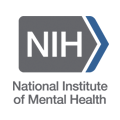Science Updates About Traumatic Events
- COVID-19 Pandemic Associated With Worse Mental Health and Accelerated Brain Development in Adolescents
-
An NIMH-supported study suggests that adolescents living through the COVID-19 pandemic may be experiencing more anxiety and depression symptoms and accelerated brain aging.
- Feelings of Detachment After Trauma May Signal Worse Mental Health Outcomes
-
A new NIMH-supported study shows that experiencing persistent feelings of detachment following trauma is an early psychological and biological marker of worse mental health outcomes.
- Women’s Experiences of Sexual Assault and Harassment Linked With High Blood Pressure
-
Women who had ever experienced sexual violence in their lifetime—including sexual assault and workplace sexual harassment—were more likely to develop high blood pressure over a seven-year follow-up period, according to an NIH-funded study.
- Brain Activity Patterns After Trauma May Predict Long-Term Mental Health
-
The way a person’s brain responds to stress following a traumatic event, such as a car accident, may help to predict their long-term mental health outcomes, according to NIMH-supported research.
- Digital Mental Health: Innovating in a Time of High Anxiety
-
Joshua Gordon, M.D., Ph.D., director of the National Institute of Mental Health, and P. Murali Doraiswamy, M.B.B.S., of Duke University School of Medicine, discuss the use of apps to manage mental health during the coronavirus (COVID-19) pandemic.
- Media Advisory: NIMH Experts Available to Discuss Mental Health Concerns Related to the Coronavirus (COVID-19) Pandemic
-
Experts from the National Institute of Mental Health (NIMH) are available to speak on a variety of topics related to mental health and the coronavirus pandemic, such as the effects of the pandemic and isolation on those with and without mental illnesses; healthy ways to deal with stress, anxiety, and loneliness; how to talk with children and teens about the coronavirus; and how people can find mental health help and support if they need it.
- Supporting Mental Health During the COVID-19 Pandemic
-
The outbreak of coronavirus disease 2019 (COVID-19) may be stressful – it can be difficult to cope with fear and anxiety, changing daily routines, and a general sense of uncertainty. Taking steps to care for your mental health can help you manage stress.
- Crisis and Suicide Prevention Services Struggle with Demand after Celebrity Suicides
-
The United States may lack the resources needed to meet increases in demand for suicide prevention services that occur after celebrity suicides, according to a recent study of crisis mental health services published in the journal Psychiatric Services.
- Coping With Familial Mental Illness in Stressful Times
-
“An NIH/NIMH lifer” reveals how his Asian American family successfully coped with severe mental illness compounded by discrimination.









